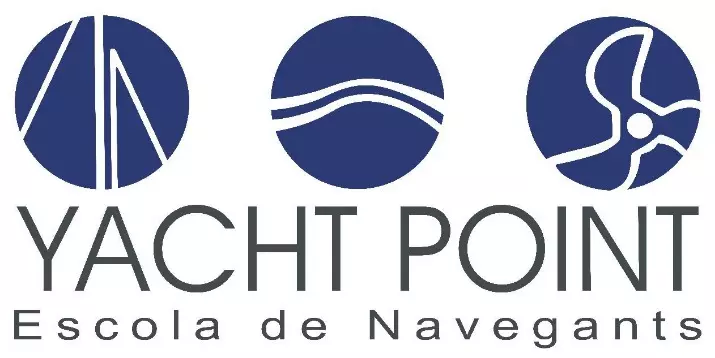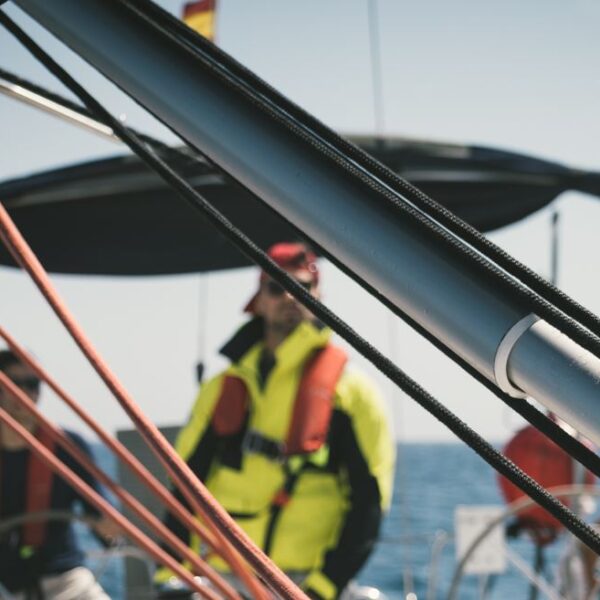In this article, we will see the differences between the national nautical title called PER (Patrón de Embarcaciones de Recreo) and the English international license of the RYA (Royal Yacht Association), Day Skipper.
Choosing one or the other will depend on what you want to use the title for.
With both certificates, you will be able to hire ships in Mediterranean countries; the main difference is whether you want to buy one, as your nationality must be in accordance with the flag of the ship you want to have.
- If you are Spanish and want to buy a ship with a Spanish flag, the best option is Spanish degrees, in which case you could start with the PER.
- If your idea is to buy a boat abroad and you’re looking for the option of working with a foreign flag or renting outside the Mediterranean, the Day Skipper is for you.
PREREQUISITES
On course access prerequisites we, find that:
- For the PER, there is no need for prior experience or knowledge. It is ideal for those who seek to start in the world of nautical.
- Day Skipper requires a previous experience of five days and 100 miles, and a good level of nautical English. It is therefore perfect for those who have already had a first contact with sailing.
However, the responsibilities you will obtain are similar; the PER will allow you to carry vessels of up to 15 metres in length 12 miles from the coast, but the streak is extended to 24 metres with an additional 24-hour practice that enables you to sail to the Balearic Islands. With the Day Skipper, the RYA only specifies that it will be possible to navigate by day in small vessels and familiar waters, without specifying either the maximum miles or the maximum length of the vessel.
According to Spanish regulations, specifically Real Decreto 875/2014 of October 10th, which governs nautical qualifications for operating recreational vessels, the Day Skipper certification grants the authority to command vessels up to 24 meters in length and sail up to 12 miles offshore.
HOW THE COURSES ARE
The big difference lies in the knowledge acquired and the practices carried out:
In the theoretical field:
- The PER course has a duration of about 20 hours
- The Day Skipper is a 40-hour theoretical course.
The two theoretical courses can be performed in person or online.
For none of the certificates, it is mandatory to do the theoretical part, but in order to obtain the PER, it is necessary to pass an official theoretical exam, and for the Day Skipper, you must have the level of theory, which will be evaluated during the practicals. If the instructor considers that the student does not have the knowledge, the student will have to complete the course and pass the theoretical exam.
In the case of the PER, the exam is a 45-question test, of which you can fail up to 13 and have to fulfil the requirements of the various theoretical sections. This exam is programmed by the Escola de Capacitació.
For the Day Skipper, you must pass two exams: one with nautical charts and a general one on the subject. The exams are held at school on the last day of the course.
In the practical field
For the basic PER (without qualifications), a total of 28 hours will be carried out: 16 hours of Security and Manoeuvres on board and 12 hours of Radiocommunications in the classroom with certified simulators. If you want to enable the sailing title, you will have to do 16 more hours of sailing practice, which will make a total of 32 hours on board.
For the Day Skipper, 40 hours of intensive sailing practice will have to be carried out, usually on five consecutive days or on two weekends from Friday to Sunday.
In short, the Day Skipper has an additional 8 hours of practice on board, but the big difference is the maximum number of students who can board during these. The Day Skipper has a rate of up to 5 students, and the PER has one of 11 students.
- Day Skipper practices can be done on a sailing or power boat.
- The PER power practices can be performed on sailing boats with power, but the Day Skipper power practices will have to be performed on power yachts.
The responsibilities of the PER can be extended by doing complementary sailing and/or Balearic practices.
At Yacht Point, we give both courses, so we can advise you on which one is best for you.
If you still have questions about the differences between these two degrees or which one is more convenient for you, do not hesitate to contact us at info@yachtpointbcn.com

